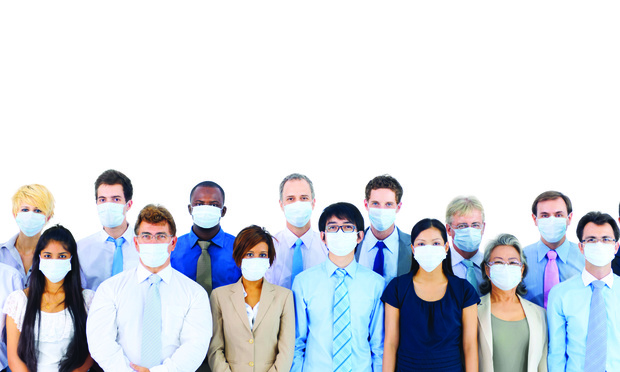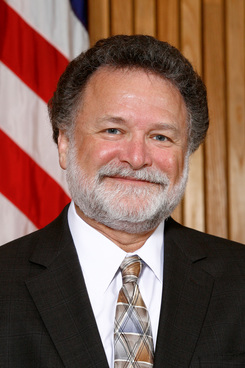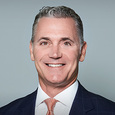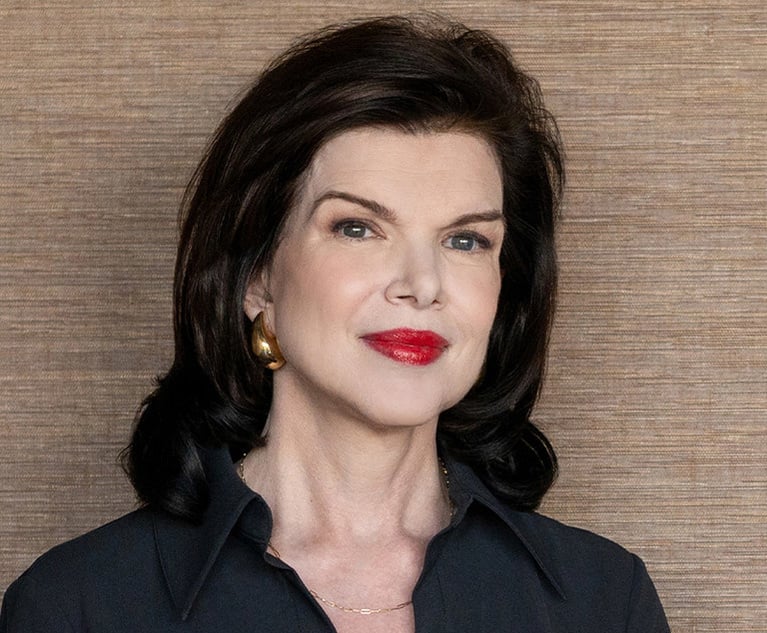'I Want to See the Person's Face': Houston Judges Poll Attorneys About Face Masks, COVID-19 Reopening Precautions
As Texas courts prepare to reopen in-person proceedings as soon as June 1, the Harris County judiciary sent an online survey to measure local lawyers' feelings about face masks, plexiglass dividers, jury selection and more.
May 19, 2020 at 05:48 PM
5 minute read

An attorney, questioning a jury panel about potential biases related to a case, is studying faces in the crowd for expressions that would show their underlying reactions.
But each potential juror is wearing a face mask.
How does it impact jury selection?
The issue of jurors in face masks—plus, how to judge a witness' credibility when her face is covered—were a couple of the questions on an online survey that the Harris County judiciary emailed to local attorneys Tuesday, in an attempt to to gauge the bar's opinion about returning to the courthouse for in-person hearings and trials.
"We're in a very strange situation. One that we've never experienced in our lifetimes, probably," said Judge Robert Schaffer of the 152nd District Court, who serves as Harris County's local administrative judge.
The survey went out Tuesday morning, and it already had more than 1,400 responses by lunch time, Schaffer noted, adding that the idea of restarting jury trials is down the road, definitely not before July.
Houston commercial litigator Jeff Joyce said that he's talked to attorneys who are suspicious about the survey, thinking that judges are only soliciting lawyer input so they'll object less once the changes come down.
"It's nice to be asked," Joyce said. "I'm assuming judges want to know what the lawyers think, and I'm sure they would dial that in. The cynical were commenting, maybe this is just to make sure everyone felt like they had input."
But Schaffer said judges do want to hear from lawyers.
"We are trying to design the courtrooms to accommodate certain things. We take into account what the lawyers are thinking," he said.
Some of the survey questions painted a picture of what Texas courts might look like when they reopen to in-person proceedings as early as June 1. Jury trials won't start up right away, and remote hearings will still be utilized, but in-person proceedings will be allowed as long as the courts follow a long list of safety precautions created by the Texas Office of Court Administration.
Read more: Things Will Change When Texas Courthouses Reopen: Judiciary Lays Road Map for After June 1
Cover-Ups?
Schaffer said lawyers and judges are talking about the issue of witnesses in face coverings.
 152nd District Court Judge Robert Schaffer.
152nd District Court Judge Robert Schaffer."I want to see the person's face. I want to see if he looks like he's being sincere, or if she looks like she's making stuff up and not telling the truth," Schaffer said. "It's a huge issue, and one we have to deal with."
Aside from the queries about face masks, the survey asked for opinions on the idea of the courts installing plexiglass shields to separate the jurors inside of the jury box, surround the witness stand, and protect the judge's bench. There were questions about doing jury selection with smaller panels, or perhaps using videoconferencing for the voir dire, among other things.
Schaffer noted that in Harris County, the courts are already installing plexiglass to protect the clerks, court reporters and bailiffs, who sit in high-traffic areas of courtrooms.
"I joke our courtrooms are going to look like a hockey rink," he said. "We're not putting plexiglass up around the jury box, because we haven't figured out how we are going to conduct the jury trials. This is an issue that's causing a lot of concern, because people sitting in the jury box are sitting shoulder-to-shoulder."
Bill Kroger, president of the Houston Bar Association, said that he would be OK with plexiglass if it made the jurors, witnesses and the court staff more comfortable and provided them protection.
"I did not think that would interfere with my ability to present a case, the fact there would be a plastic shield up," said Kroger, partner in Baker Botts in Houston, who added that dealing with an inconvenience such as a plexiglass shield is "less important than getting the jury system up and running."
 Chris Hanslik.
Chris Hanslik.But Chris Hanslik, chairman of BoyarMiller in Houston, said that while he can see the sense of protecting court staff with plexiglass, he wonders how a face mask or a plexiglass shield would impact how well the jurors would be able to hear a witness. Lawyers do rely on verbal and nonverbal communication to pick a jury, and face masks would take one of those communication methods away, he added.
"People can kind of hide behind a mask. It's hard to have a conversation with those who have a mask on," Hanslik explained. "In a complex case, I would err on the side of let's wait and have a more traditional trial, than one with masks and plexiglass."
This content has been archived. It is available through our partners, LexisNexis® and Bloomberg Law.
To view this content, please continue to their sites.
Not a Lexis Subscriber?
Subscribe Now
Not a Bloomberg Law Subscriber?
Subscribe Now
NOT FOR REPRINT
© 2025 ALM Global, LLC, All Rights Reserved. Request academic re-use from www.copyright.com. All other uses, submit a request to [email protected]. For more information visit Asset & Logo Licensing.
You Might Like
View All
Houston Trial Lawyer Mary-Olga Lovett Leaves King & Spalding to Open Boutique
3 minute read

Deal Watch: Private Equity Dealmakers Make 2025 Predictions Amid Deal Resurgence
12 minute read
Law Firms Mentioned
Trending Stories
- 1Supreme Court Appears Sympathetic to Law Requiring Porn Sites to Verify Users' Age
- 2Cybersecurity Breaches, Cyberbullying, and Ways to Help Protect Clients From Both
- 3AI in 2025: Five Key Predictions on How It Will Reshape International Law Firms
- 4Justice Known for Asking 'Tough Questions' Resolves to Improve Civility
- 5Robinson & Cole Elects New Partners and Counsel
Who Got The Work
J. Brugh Lower of Gibbons has entered an appearance for industrial equipment supplier Devco Corporation in a pending trademark infringement lawsuit. The suit, accusing the defendant of selling knock-off Graco products, was filed Dec. 18 in New Jersey District Court by Rivkin Radler on behalf of Graco Inc. and Graco Minnesota. The case, assigned to U.S. District Judge Zahid N. Quraishi, is 3:24-cv-11294, Graco Inc. et al v. Devco Corporation.
Who Got The Work
Rebecca Maller-Stein and Kent A. Yalowitz of Arnold & Porter Kaye Scholer have entered their appearances for Hanaco Venture Capital and its executives, Lior Prosor and David Frankel, in a pending securities lawsuit. The action, filed on Dec. 24 in New York Southern District Court by Zell, Aron & Co. on behalf of Goldeneye Advisors, accuses the defendants of negligently and fraudulently managing the plaintiff's $1 million investment. The case, assigned to U.S. District Judge Vernon S. Broderick, is 1:24-cv-09918, Goldeneye Advisors, LLC v. Hanaco Venture Capital, Ltd. et al.
Who Got The Work
Attorneys from A&O Shearman has stepped in as defense counsel for Toronto-Dominion Bank and other defendants in a pending securities class action. The suit, filed Dec. 11 in New York Southern District Court by Bleichmar Fonti & Auld, accuses the defendants of concealing the bank's 'pervasive' deficiencies in regards to its compliance with the Bank Secrecy Act and the quality of its anti-money laundering controls. The case, assigned to U.S. District Judge Arun Subramanian, is 1:24-cv-09445, Gonzalez v. The Toronto-Dominion Bank et al.
Who Got The Work
Crown Castle International, a Pennsylvania company providing shared communications infrastructure, has turned to Luke D. Wolf of Gordon Rees Scully Mansukhani to fend off a pending breach-of-contract lawsuit. The court action, filed Nov. 25 in Michigan Eastern District Court by Hooper Hathaway PC on behalf of The Town Residences LLC, accuses Crown Castle of failing to transfer approximately $30,000 in utility payments from T-Mobile in breach of a roof-top lease and assignment agreement. The case, assigned to U.S. District Judge Susan K. Declercq, is 2:24-cv-13131, The Town Residences LLC v. T-Mobile US, Inc. et al.
Who Got The Work
Wilfred P. Coronato and Daniel M. Schwartz of McCarter & English have stepped in as defense counsel to Electrolux Home Products Inc. in a pending product liability lawsuit. The court action, filed Nov. 26 in New York Eastern District Court by Poulos Lopiccolo PC and Nagel Rice LLP on behalf of David Stern, alleges that the defendant's refrigerators’ drawers and shelving repeatedly break and fall apart within months after purchase. The case, assigned to U.S. District Judge Joan M. Azrack, is 2:24-cv-08204, Stern v. Electrolux Home Products, Inc.
Featured Firms
Law Offices of Gary Martin Hays & Associates, P.C.
(470) 294-1674
Law Offices of Mark E. Salomone
(857) 444-6468
Smith & Hassler
(713) 739-1250






